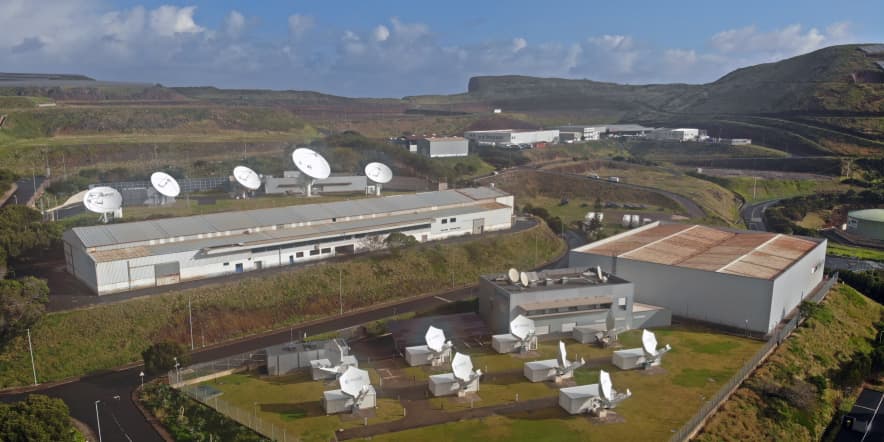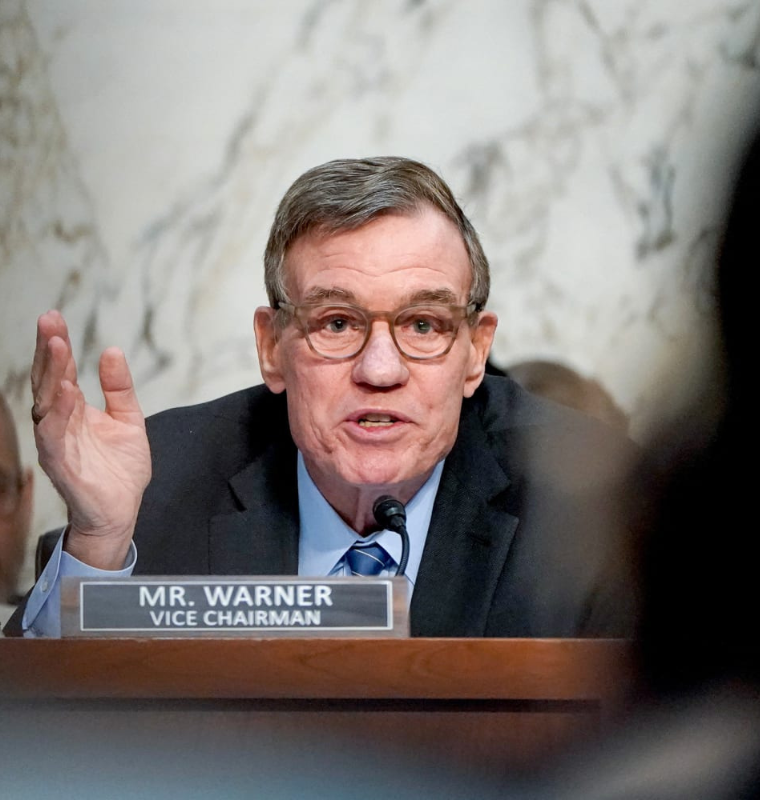French-Backed Capital Boost Sends Starlink Competitor Eutelsat Soaring 22%
French-Backed Capital Boost Sends Starlink Competitor Eutelsat Soaring 22%
By
Leah Rosenfeld
Last updated:
June 20, 2025
First Published:
August 6, 2025

A ground network of satellites at the headquarters of Eutelsat Madeira Unipessoal Lda in Canial, Madeira, Portugal, on Saturday, March 8, 2025. | Bloomberg | Bloomberg | Getty Images
Eutelsat Surges as France Backs $1.55 Billion Capital Injection
Shares of European satellite operator Eutelsat soared by 22% Friday morning after the company unveiled a major capital increase backed by the French government. The move is designed to solidify Eutelsat’s position as Europe’s most prominent Low Earth Orbit (LEO) satellite operator — and as a credible regional alternative to Elon Musk’s Starlink.
The company announced a €1.35 billion ($1.55 billion) capital raise, with the French state emerging as the company’s largest shareholder. France will acquire a 29.99% stake, while India’s Bharti Space Limited — already a major partner in Eutelsat’s OneWeb venture — will hold 18.7% of shares.
At 10:15 a.m. London time, Eutelsat’s stock was trading sharply higher, reflecting renewed investor confidence after months of intense market volatility.
Volatile Year for Eutelsat: From Hype to Reset
Eutelsat’s stock has been highly unpredictable throughout 2025. In March, speculation that Eutelsat could become Europe’s answer to Starlink fueled a rapid spike in its share price. However, following profit-taking and concerns over the broader satellite industry’s capital intensity, shares had retreated significantly before this week’s announcement revived momentum.
“Today’s capital raise represents a major strategic realignment for both Eutelsat and Europe’s ambitions in space,” said François Lambert, a European aerospace analyst at AXA Investment Managers.
The funds, combined with a parallel debt refinancing package, will allow Eutelsat to expand its LEO satellite infrastructure through OneWeb — its joint venture with Bharti — and strengthen its position in lucrative business-to-business and government contracts.
Securing Military and Strategic Partnerships
Eutelsat’s growing ties with the French government go beyond just financial backing. This week, the company signed a landmark 10-year agreement with the French armed forces, providing prioritized access to its OneWeb satellite constellation for military communications, cyber defense, and government data transfer.
“As the only fully operational European LEO network, Eutelsat is uniquely positioned to serve critical defense and government needs while supporting NATO and EU objectives for strategic autonomy,” the company said in a statement.
This places Eutelsat at the heart of Europe’s push to secure its own independent space communications capabilities amid rising geopolitical tensions and global competition for satellite dominance.
A Broader European Effort for Space Independence
The French government emphasized the broader implications of its investment. President Emmanuel Macron posted on X (formerly Twitter), “By strengthening Eutelsat, we are reinforcing France’s strategic independence and paving the way for a more autonomous European space sector.”
Macron underscored that the move would be discussed further at the Paris Air Show, highlighting how space technology has become central to both economic security and national defense planning.
The French government’s involvement could also pave the way for additional European support. Eutelsat indicated that other key investors, including the United Kingdom, may join the capital raise in the coming months, signaling a potential pan-European effort to develop homegrown alternatives to U.S. and Chinese satellite giants.
Starlink Rivalry Intensifies
Eutelsat’s ambitions directly target the growing market for satellite-based broadband and communications currently dominated by Starlink, which has rapidly deployed over 5,500 satellites globally as of mid-2025.
While Starlink remains far ahead in terms of sheer scale, Eutelsat’s OneWeb constellation is steadily expanding. OneWeb currently operates around 650 satellites, with further launches planned over the next 18 months as it works to close coverage gaps and meet growing demand from enterprise, government, and maritime clients.
Unlike Starlink’s strong focus on consumer internet, Eutelsat is positioning itself as a provider of secure, high-capacity communication services for military, aviation, maritime, and institutional clients — areas where demand for resilient, encrypted connectivity continues to surge.
The High-Stakes Economics of Satellite Networks
Building and operating LEO satellite networks remains extraordinarily capital-intensive. SpaceX’s Starlink reportedly spent over $10 billion to reach its current size, and is seeking billions more in fresh capital for continued expansion, global licensing, and network upgrades.
For Eutelsat, the latest capital raise serves not only to fund expansion but to reassure markets that Europe has the political will and financial backing to compete in this rapidly consolidating sector.
“This capital injection buys Eutelsat precious time,” said aerospace consultant Oliver Cameron of Orbital Strategies Group. “The challenge now is to execute quickly — deploying satellites, signing long-term commercial contracts, and proving financial sustainability at scale.”
A Turning Point for European Space Ambitions?
As the race for global LEO dominance heats up, Eutelsat’s strengthened position signals a major strategic shift for Europe’s space industry.
“With the U.S. firmly backing Starlink and China developing its own satellite networks, Europe needs a serious homegrown contender to secure independent access to space-based communications,” said Katrin Müller, a defense analyst at the European Council on Foreign Relations.
The French government’s bold backing of Eutelsat may represent the first concrete step toward that goal — but the real test will come as the company scales operations and competes for increasingly valuable government and enterprise contracts.
Popular articles
Subscribe to unlock premium content
Disney’s Timeless Magic and How the Entertainment Giant Continues to Shape Culture and Innovation

Imran Khan’s Economic Missteps Amid Political Chaos in Pakistan

The Philippines’ Digital Shift How Remittances and BPO Are Fueling Growth

Disney’s Timeless Magic and How the Entertainment Giant Continues to Shape Culture and Innovation

Imran Khan’s Economic Missteps Amid Political Chaos in Pakistan

Disney’s Timeless Magic and How the Entertainment Giant Continues to Shape Culture and Innovation









